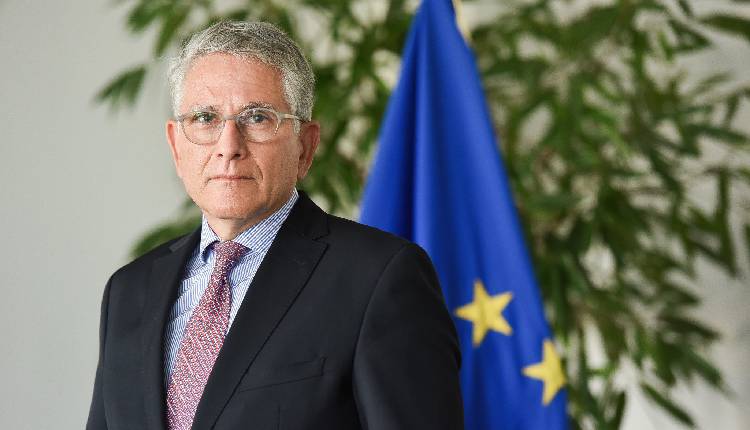EU-Egypt trade has quadrupled over the past 20 years, rising from €8.6 billion to €37.2 billion. Currently, the EU accounts for 22 per cent of Egypt’s total trade, according to Gerassimos Thomas, the Director-General for Taxation and Customs Union at the European Commission.
Thomas stated on Sunday that Egypt and the EU have agreed to strengthen their collaboration in various strategic areas, including climate change, amidst serious global challenges.
He emphasised Egypt’s influential role as a regional leader in inspiring decarbonisation and showing that green investment can support economic stability and growth, while efforts in Europe, are underway to achieve a 55 per cent reduction in greenhouse gas emissions by 2030, following a one-third reduction between 1990 and 2022.
In this regard, the European Commission has legally pledged to reach carbon neutrality by 2050, according to the statement.
Thomas further stated that carbon pricing is a key tool for achieving net zero, aligning with the principle that polluters should pay.
In the past, the EU supported industry adaptation by providing free allowances under the Emissions Trading System, which are now being phased out more quickly, especially in the most energy-intensive sectors, where they will be completely eliminated by 2034.
Thomas also stressed the need to prevent emissions from simply shifting elsewhere to ensure the effectiveness of their mitigation tools. To avoid this risk of carbon leakage, the EU has introduced the Carbon Border Adjustment Mechanism (CBAM).
Moreover, Europe imports more than it exports in sectors like cement, iron and steel, aluminium, fertilisers, electricity, and hydrogen, which are all covered by CBAM. The demand for more sustainable products in these sectors is set to increase in EU markets.
Egypt has a high exposure to CBAM, with nearly 20 per cent of its exports to the EU falling under this mechanism.
The EU, which currently receives 79 per cent of Egypt’s aluminium exports, will start financially impacting these imports in 2026 due to the transitional phase of the CBAM, however, any effective carbon prices or taxes that Egypt pays can be deducted from the import price.
By mid-2025, the EU aims to implement enhanced methods for determining embedded emissions and assess the expansion of the CBAM to encompass more products and indirect emissions, a process in which an Egyptian observer is invited to participate, Thomas added.
